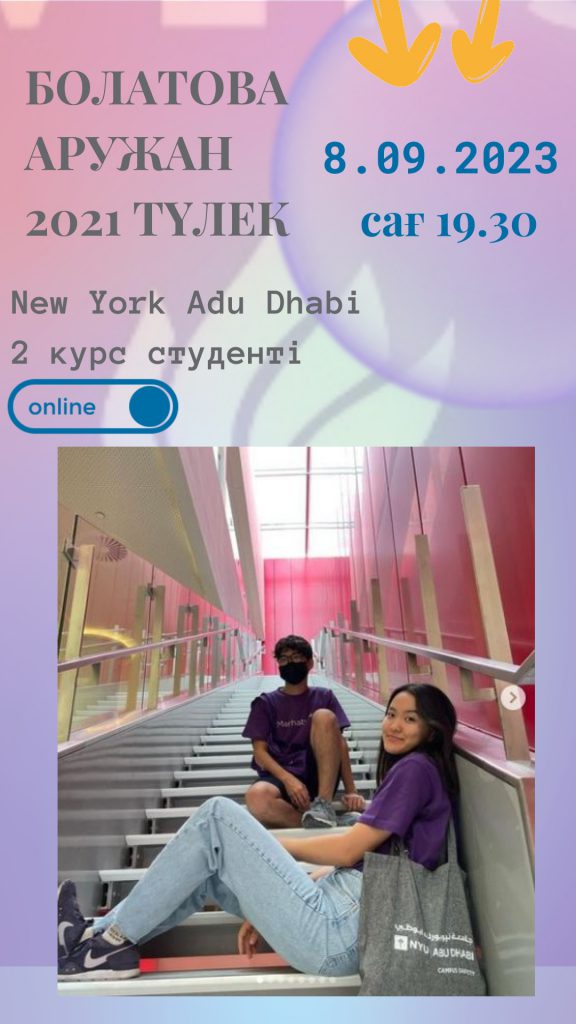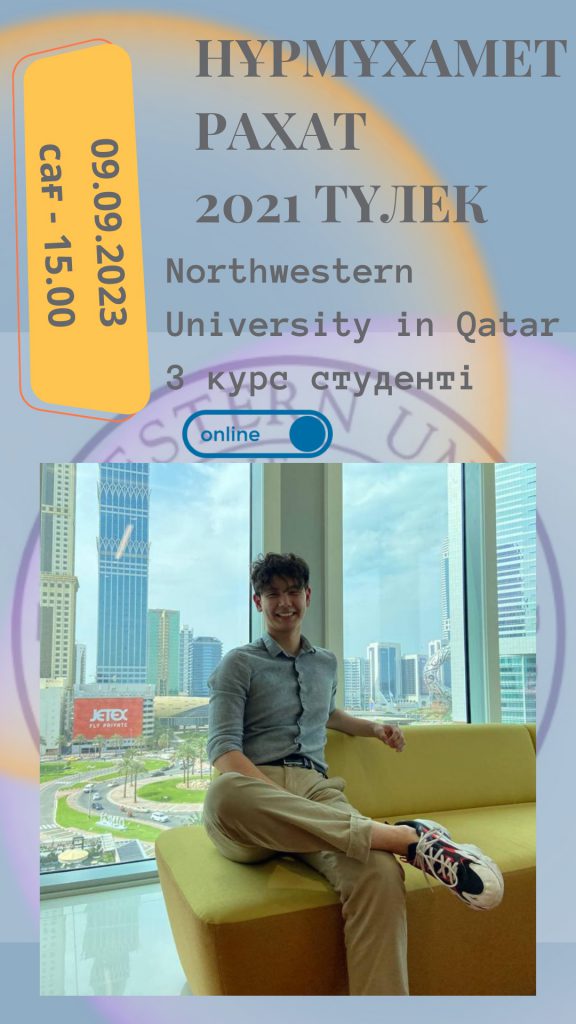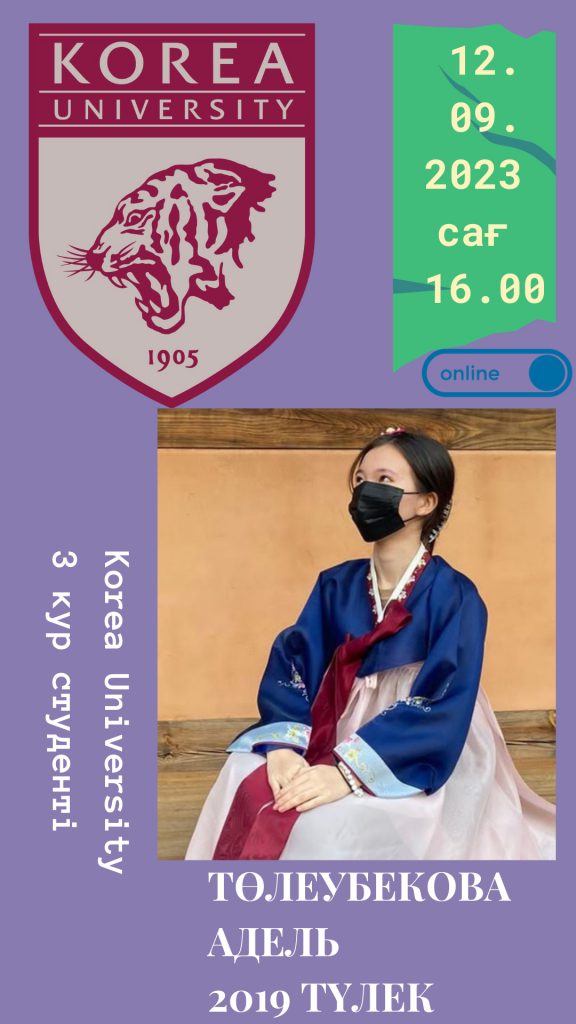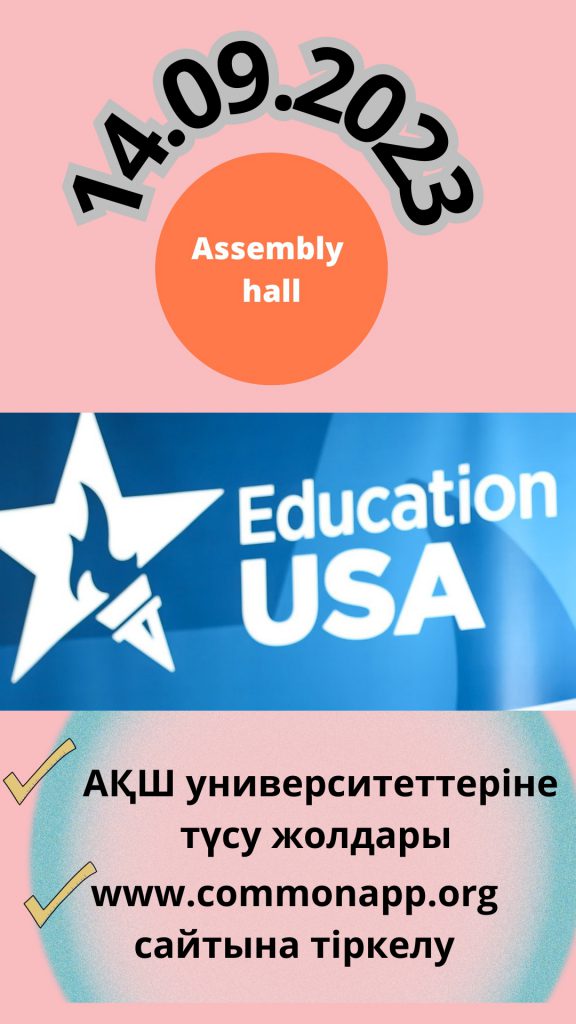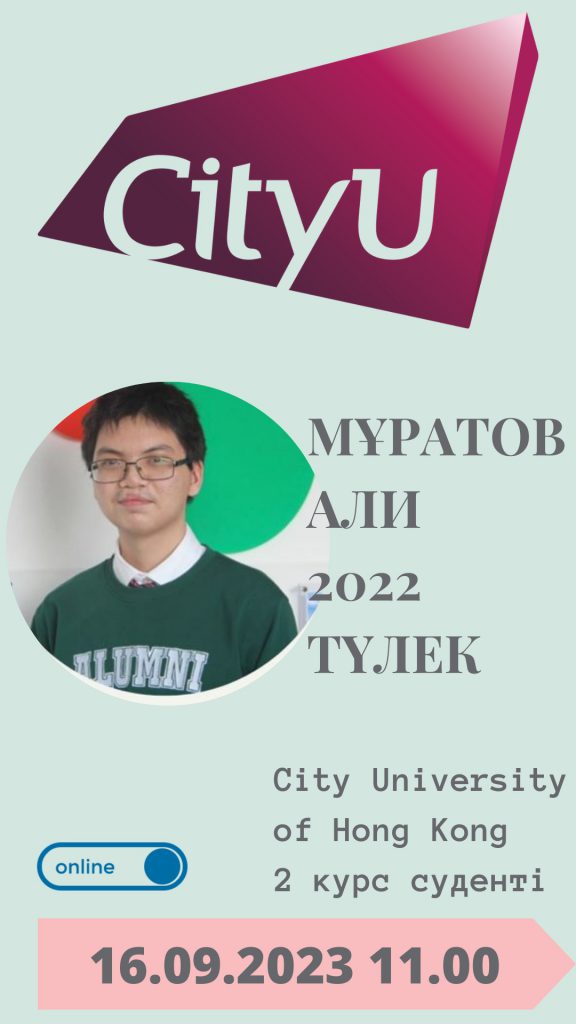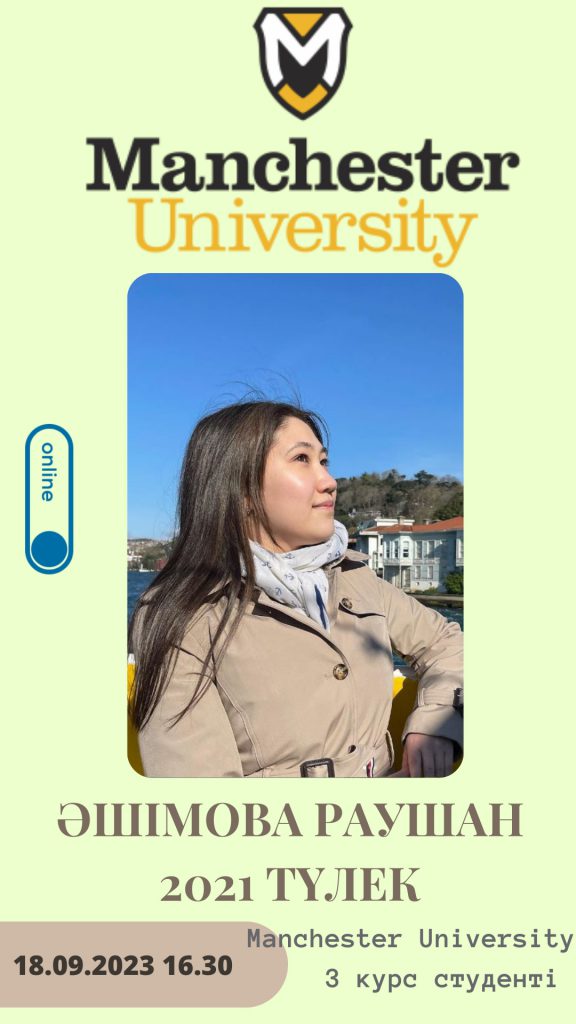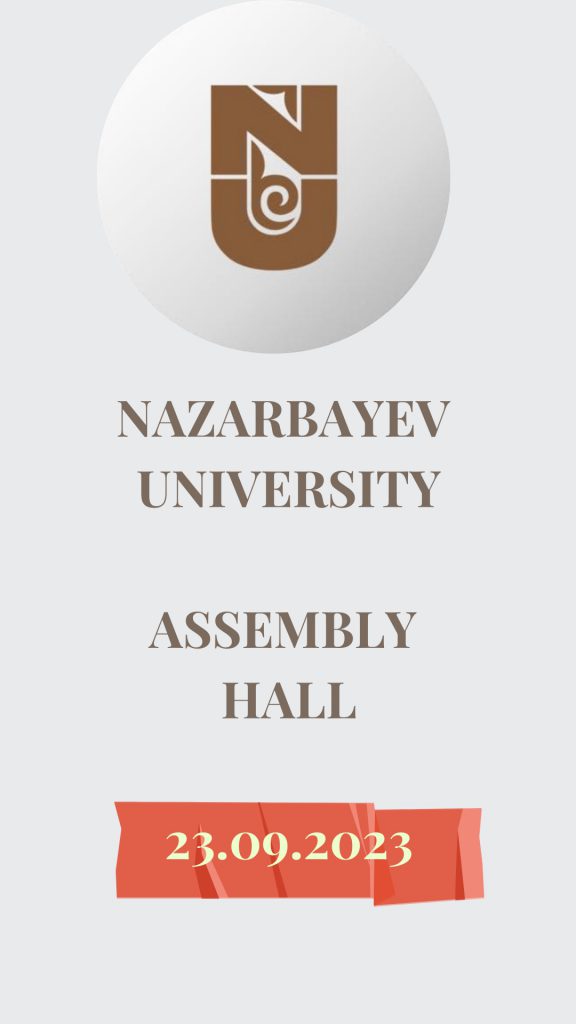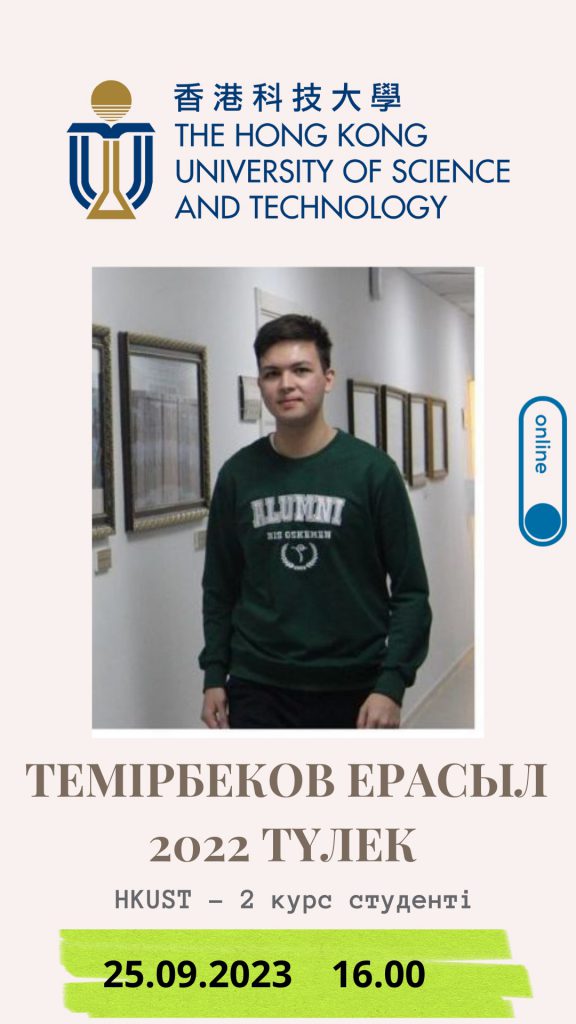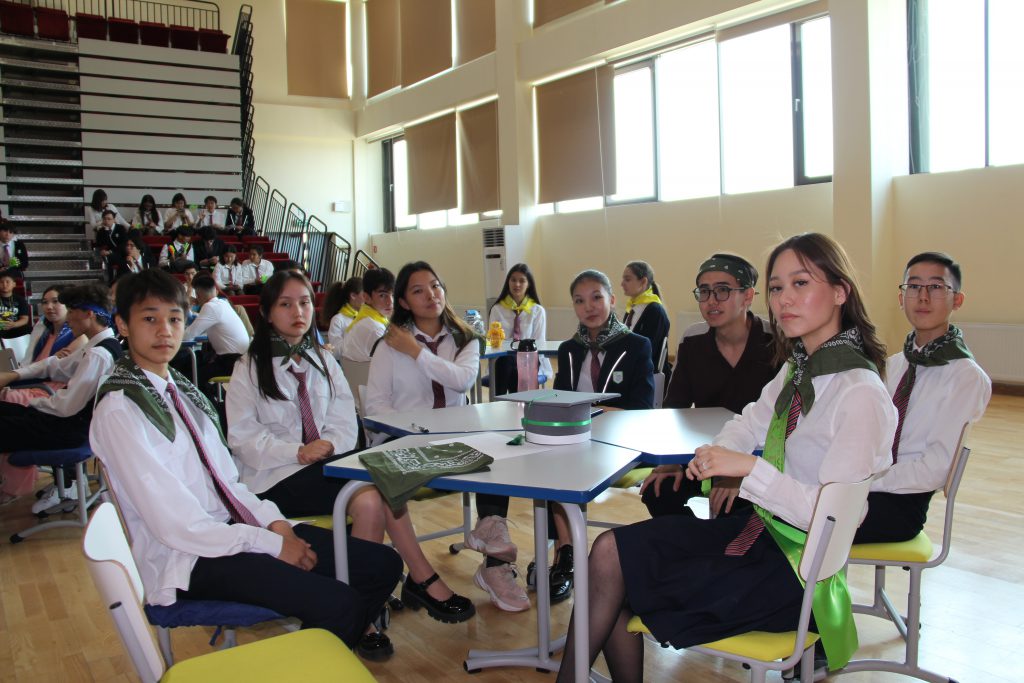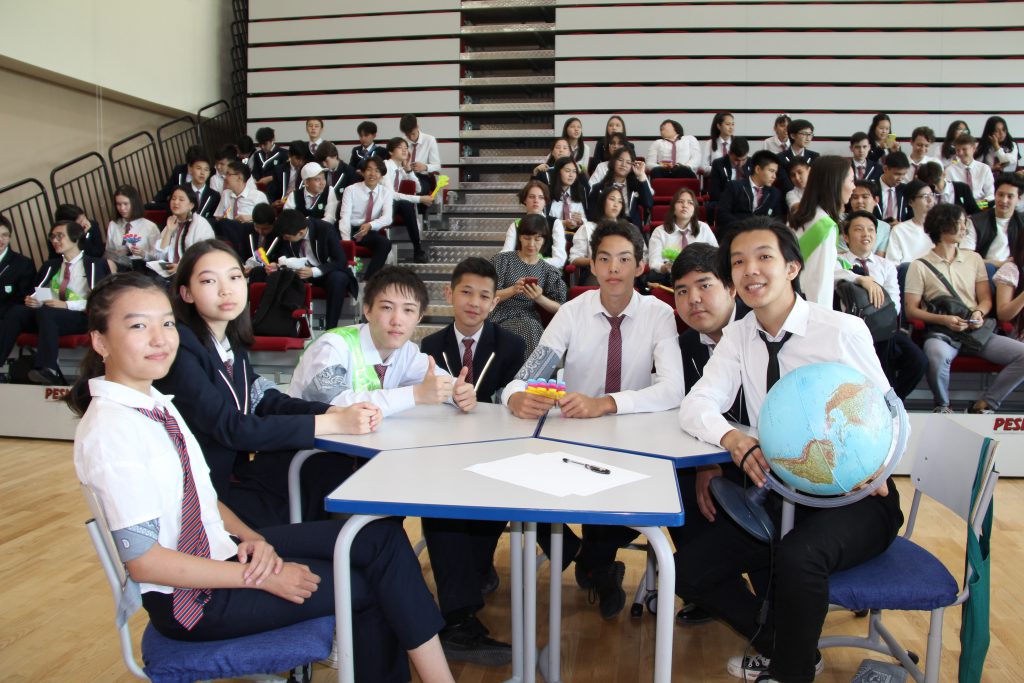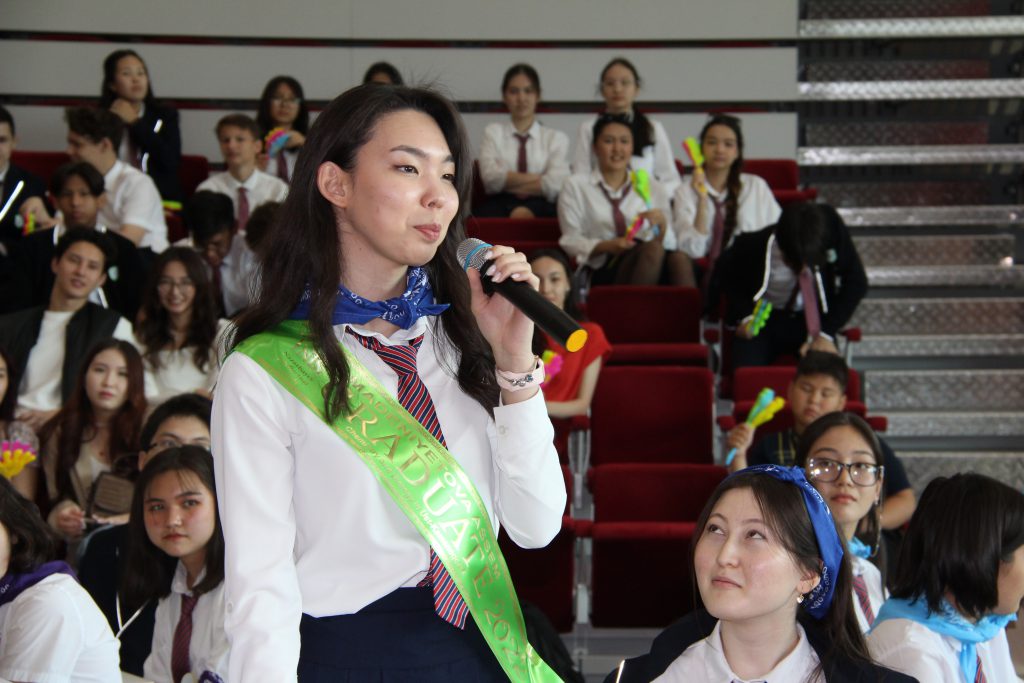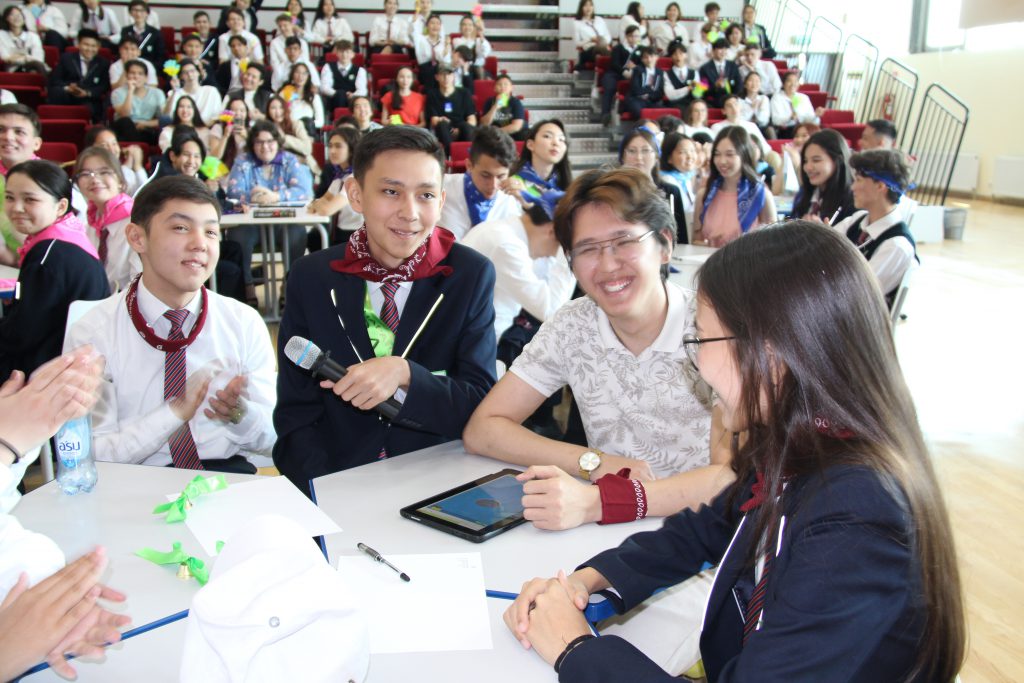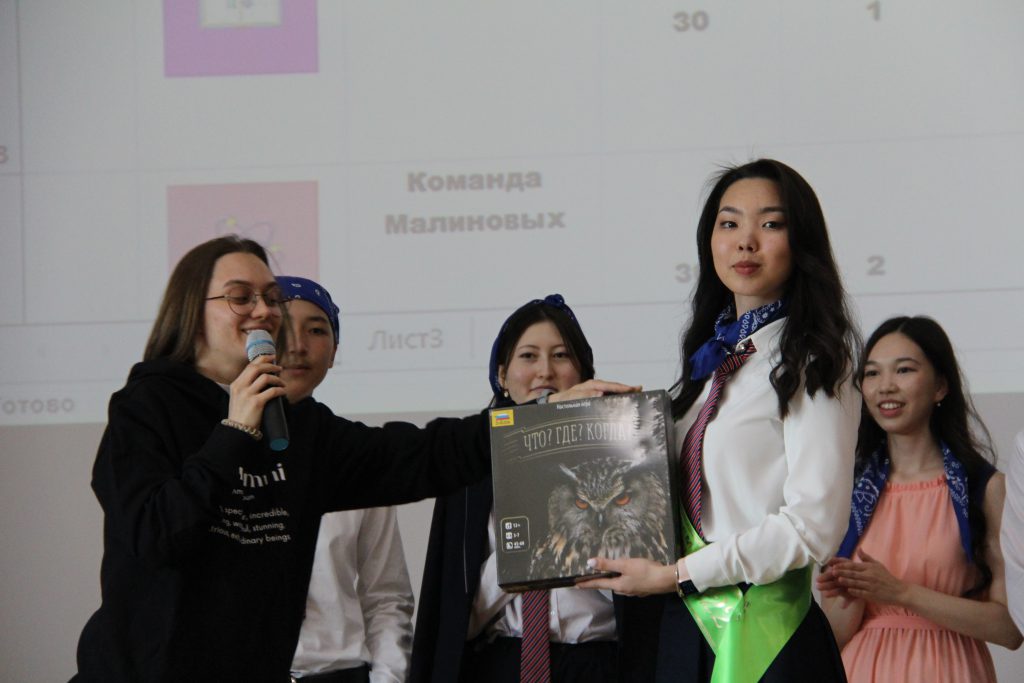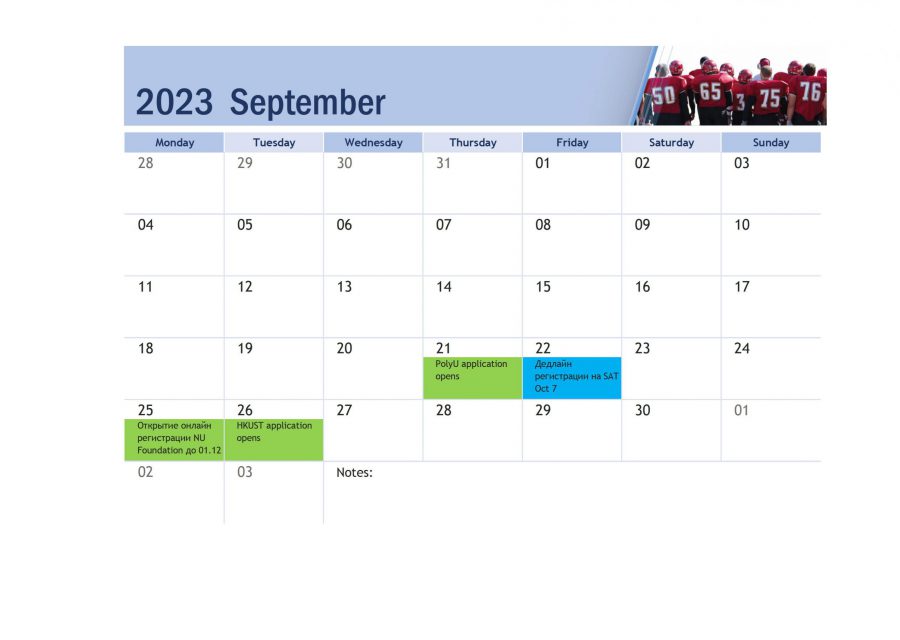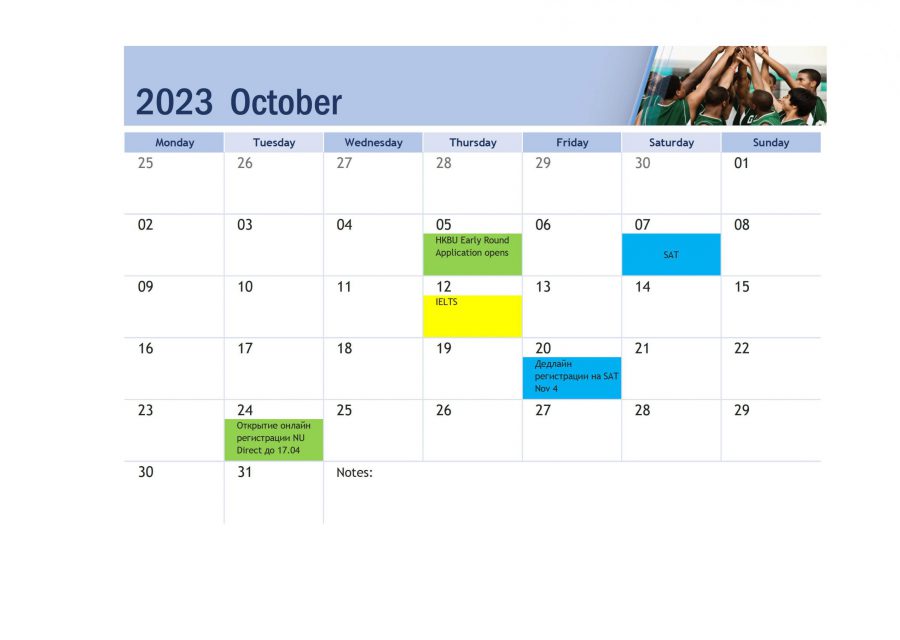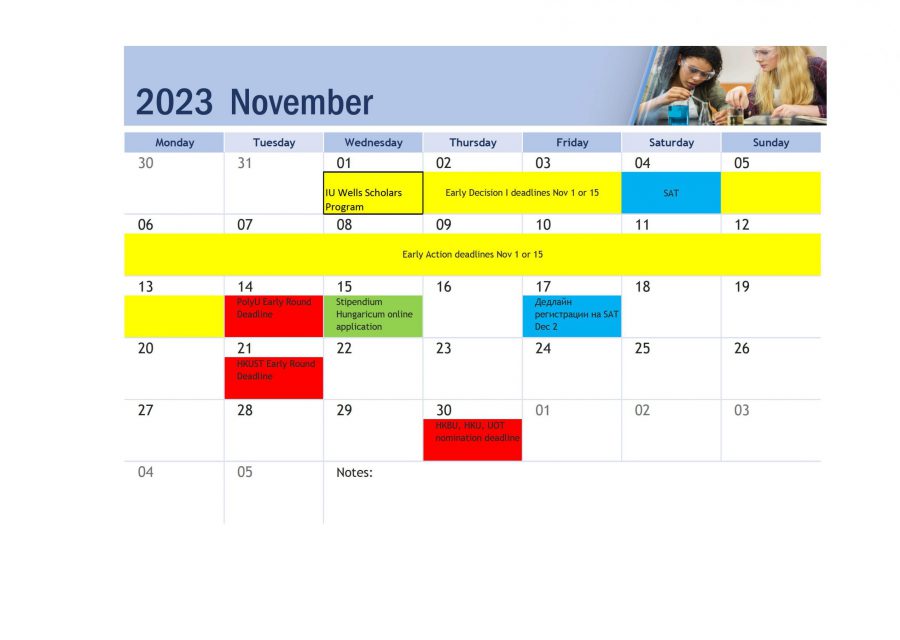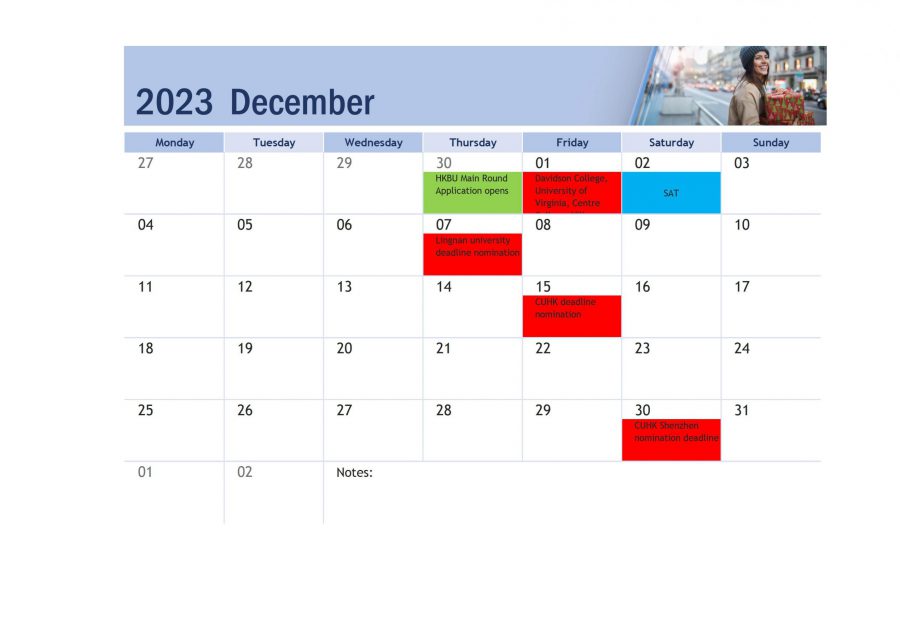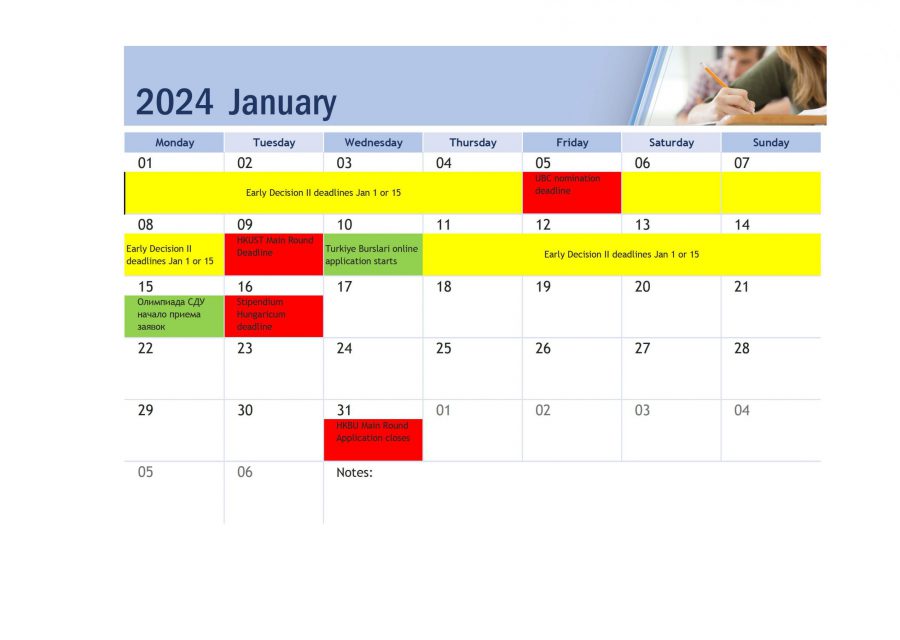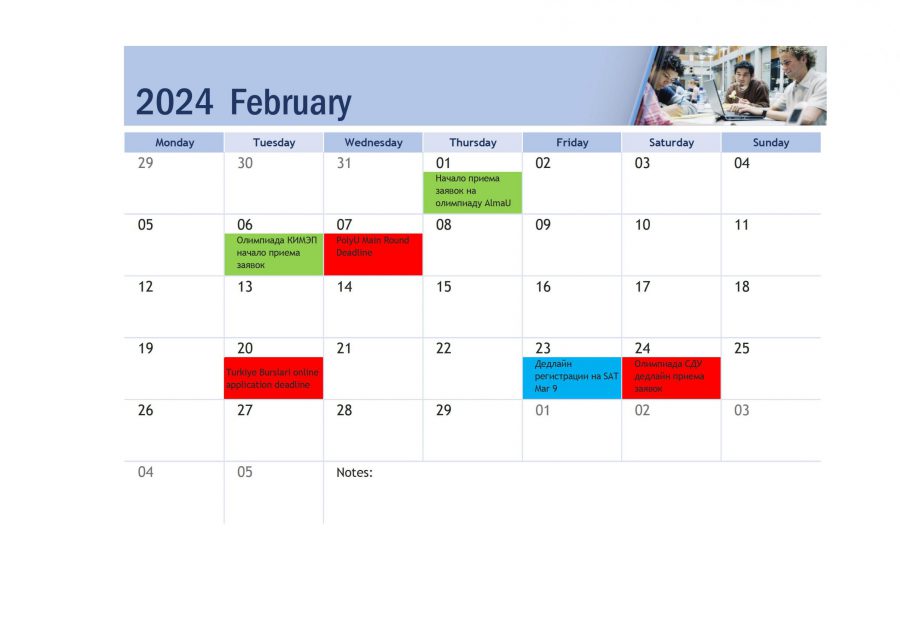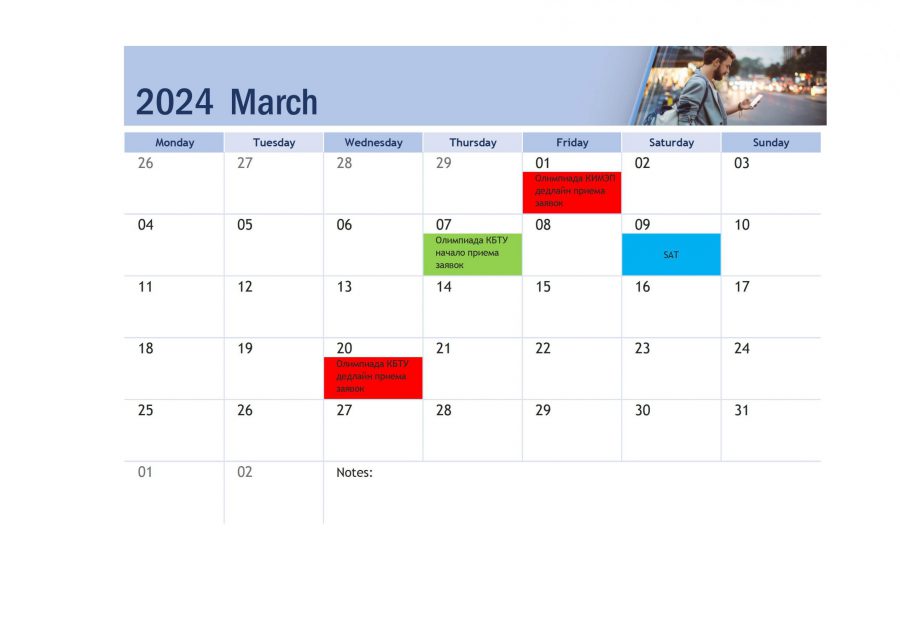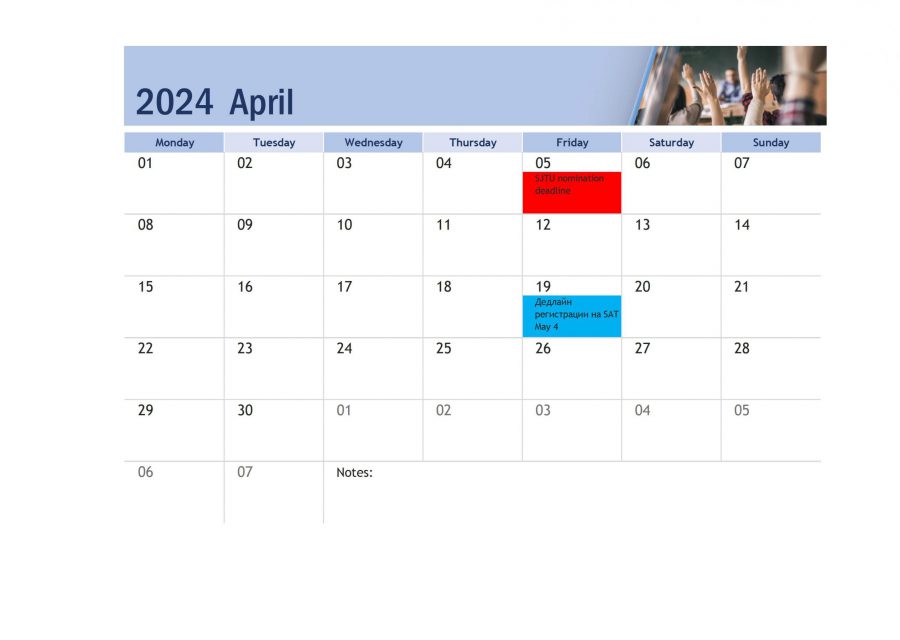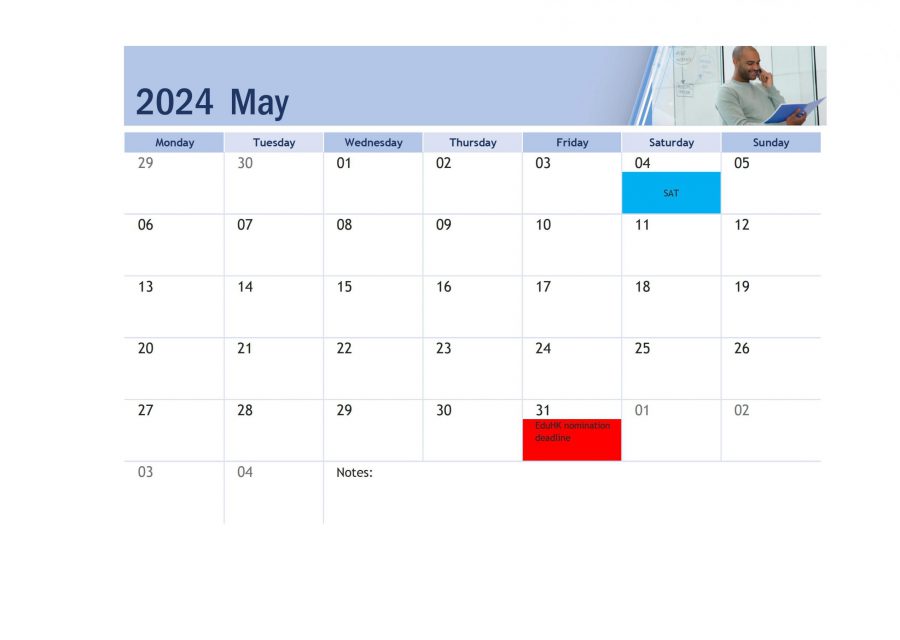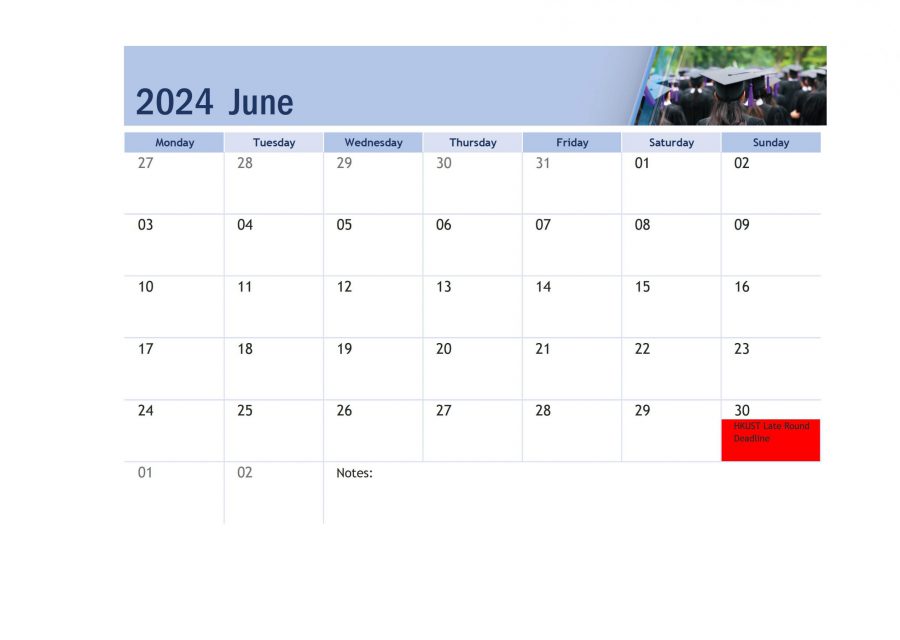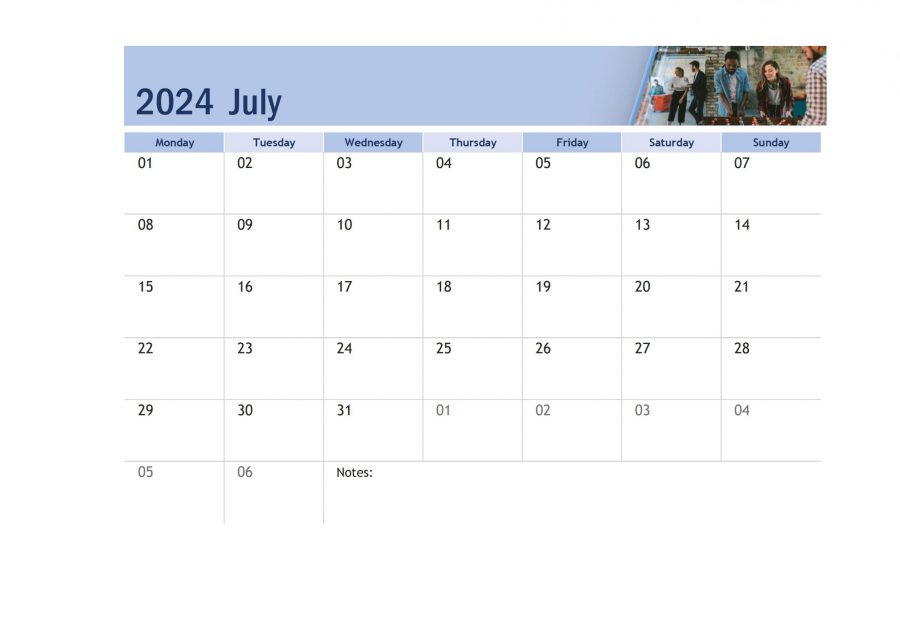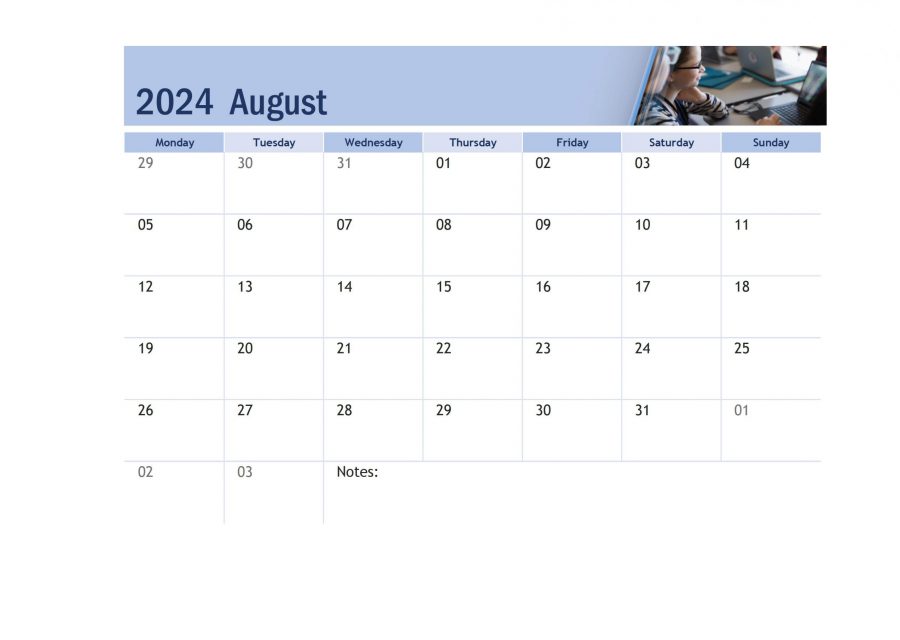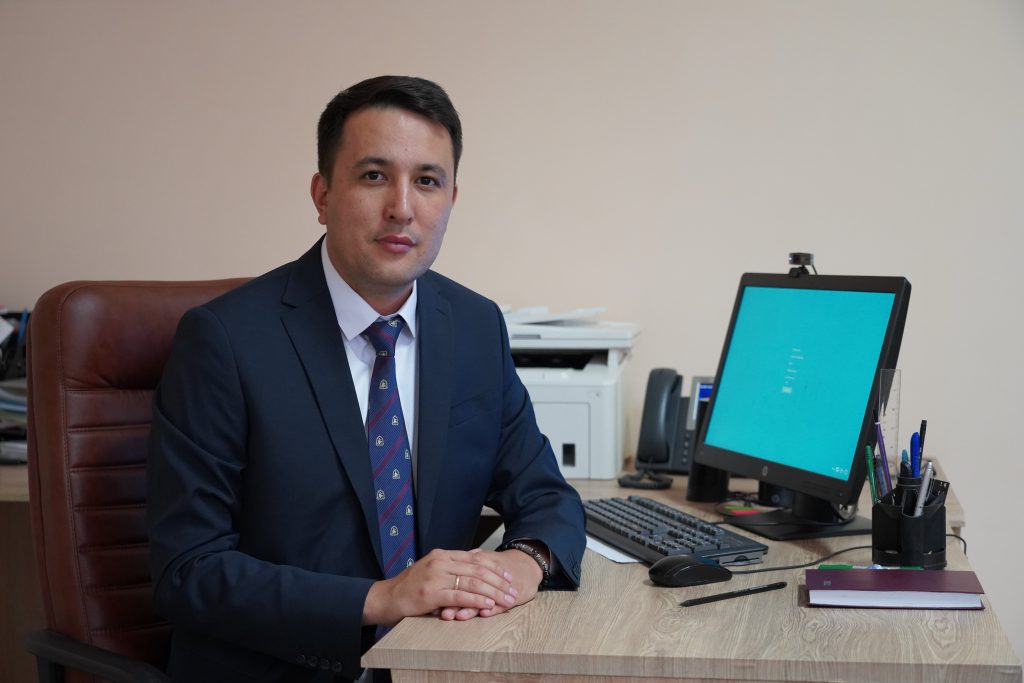
Berikbolov Tulegen
Career counselor
Contacts
Тel: 8 7232 712 715 (internal numbers 6118)
E mail: berikbolov_t@ukk.nis.edu.kz
Office № 337
Link to make an appointment for a consultation
https://outlook.office365.com/owa/calendar/Bookings1803926@nis.edu.kz/bookings/
Nazarbayev Intellectual School of Chemistry and Biology in Ust-Kamenogorsk
CEEB code: 706384
Main office: +7 (7232) 71-27-15
Website: ukk.nis.edu.kz
E-mail: info@ukk.nis.edu.kz Principal: Zhupat Yerniyazova
Community
Official address: Kanysh Satpayev avenue, 53, Ust-Kamenogorsk, Kazakhstan
Postal code: 070015
School Project Capacity: 720 students with dormitory capacity of 120 spaces
The school has earned CIS Membership by demonstrating its alignment with the CIS Code of Ethics and Principles, and through its leadership in international education, sharing knowledge, embracing diverse perspectives and challenging itself to continuously improve.
Number of students for the 2023-2024 academic year: 680, including 120 living in the dormitory
School
Nazarbayev Intellectual school of Chemistry and Biology in Ust-Kamenogorsk was founded on the initiative of the president within the “22 intellectual schools” state programme framework and it started working on September, 13, 2010. Its purpose is to bring up a leader who strives for self-development and can be useful for Kazakhstan. According to its mission, the school is aimed at the development of intellectual potential of the country, contribution to the welfare of the country and its competitiveness in the world.
In 2017 the school was successfully accredited by the Council of International Schools (the Netherlands). The certificate confirms that the school provides education at a high level.
126 teachers work at the school. There are researcher-teachers, 24 expert-teachers, 42 moderator-teachers, 38 teachers and 21 trainee-teachers. Some of them are involved in creation of course plans and textbooks. All of them attend professional development courses of a country and international level. 10 of them have already completed the courses and 2 are still studying on the “Bolashak” programme. There are also teachers from the USA, Canada, New Zealand, Great Britain and other countries of the world.
For admission to NIS for Grade 7, applicants have to pass an entrance exam prepared by Johns Hopkins University, CTY and CITO. Knowledge in the following subjects are tested: Mathematics, Kazakh, Russian, English, and Spatial Reasoning. Only about 11% of applicants (about 100 students) are admitted each year. All admitted students receive the “Orken” scholarship, which covers tuition, dining, textbooks, school uniform, and boarding at the school’s dormitory. The curriculum can be described as rigorous and very demanding.
Curriculum
In order to ensure successful integration into the world educational space and students’ access to information in Kazakh, Russian, English languages, three-language teaching was introduced at the Nazarbayev Intellectual School. The educational curriculum is based on NIS Program. NIS Program is developed in collaboration with Cambridge International Examinations, the strategic partner of Nazarbayev Intellectual Schools AEO is focused on the implementation of Science and Mathematics education.
The assessment practice of NIS Ust-Kamenogorsk for Middle School and High School is realized based on “Criteria based assessment”. Criteria are used to correspond with the content and objectives of education.
Grades 7-10 are considered middle school, and Grades 11-12 are considered high school. Before entering high school, students are required to choose “profile subjects”. Those are subjects that are taught on an advanced level and according to the Cambridge A-Level Program. Each student can choose 2 of the following subjects: Chemistry, Biology, Physics, and Informatics (Computer Science). Those classes are held in English. Students are also required to choose one of the subjects taught at the standard level: Geography, Economics, and Graphics and Draftsmanship. There is also an option to choose 10-hour Mathematics. There are other required subjects in high school: Mathematics, Kazakh/Russian (second language), English, Initial Military Training, Physical Education, and Kazakhstan in the Modern World (History). In Grade 11, students are required to take the Global Perspectives and Project Work class and submit a research project in a chosen topic. The class lasts for the whole academic year and is held in English. Trained teachers help students write their papers and grade their work.
Group work is combined with individual work in laboratories of chemistry, physics or in the library. NIS Ust-Kamenogorsk offers an extensive range of extra-curricular activities, which include sport, debating, and robotics, community service options, Tedx, Model United Nations.
Grading and Ranking
| Grading and Ranking NIS Grading System | Minimum Point Requirements* (%) | Kazakhstan General School Grading System (min = 2, max = 5) |
| A+ – Outstanding |
85/100 |
5 |
| A – Excellent | 5 | |
| B – Above average | 65/100 | 4 |
| C – Average | 4 | |
| D – Below Average | 40/100 | 3 |
| E – Poor | 3 | |
| U – Fail | Less than 40 | 2 |
*- Points are comprised of summative assessment for unit (50%) and summative assessment for the term (50%)
The school does not conduct ranking of the students
Grade Point Average (GPA) Calculation
GPA is computed using the above quality points. All subjects are included in the computation. By the end of the school year, an arithmetic average for points (middle column) of all terms of each subject is calculated to produce a final grade for the subject. GPA for all subjects is established by calculating an arithmetic average for Kazakhstan General School Grading System (right column) grades and rounded to one decimal place (Example, 4.8 out of 5).
Graduates
| Class of 2015 had 67 graduates. | Class of 2020 had 97 graduates. |
| Class of 2016 had 106 graduates. | Class of 2021 had100 graduates. |
| There was no graduating class in 2017. | Class of 2022 has 99 graduates. |
| Class of 2018 had 79 graduates. | Class of 2023 has 49 graduates |
| Class of 2019 had 75 graduates. | 79 graduates are planning to graduate in the class of 2024 |
Graduates of NIS are awarded three certificates:
NIS 12th Grade Certificate High School Diploma
Unified National Testing Certificate
IELTS Results
All graduates of our school take IELTS on a free basis during their final year.
| Academic Year | Number of students | OVERALL |
| 2014-2015 | 67 | 5.8 |
| 2015-2016 | 106 | 6.02 |
| 2017-2018 | 79 | 6.3 |
| 2018-2019 | 75 | 6.3 |
| 2019-2020 | 97 | 6.5 |
| 2020-2021 | 100 | 6.8 |
| 2021-2022 | 99 | 6.5 |
Recognition of NIS Program Certificate by the universities and educational organizations
On February 22, 2018, Pusan National University (South Korea) informed about the recognition of the Certificate of the 12th grade of Nazarbayev Intellectual Schools for admission to the undergraduate programs of the University from 2018.
On March 28, 2018, UK NARIC’s International Projects Group has completed its benchmarking study of Kazakhstan’s Nazarbayev Intellectual Schools’ (NIS) Grade 12 Certificate and has evaluated it as comparable to the overall GCE A Level standard.
On May 22, 2018, The Council at the Central Office for Education Abroad of Ministers of Education and Culture of the Federal Republic of Germany announced the adoption of a decision on the possibility of admitting graduates of Nazarbayev Intellectual Schools to universities of Germany for undergraduate programs, bypassing the pre-university training foundation programs.
On July 2, 2018, Cambridge University announced the recognition of the Certificate of the 12th grade of Nazarbayev Intellectual Schools for admission to university undergraduate programs from 2019.
On February 25, 2019, The International School of Economics (International School of Economics) announced the recognition of the 12th grade certificate of the Nazarbayev Intellectual Schools for admission to the second year of study in undergraduate programs.
On April 19, 2019, NIS received recognition from The Hong Kong Polytechnic University (SAR PRC) and Glasgow Caledonian University (UK). The Hong Kong Polytechnic University (PolyU) has directed the official letter, which certifies that the NIS Grade 12 Certificate provides eligibility for entering the first year of bachelor degrees of the university. Moreover, Academic Policy and Practice Committee of Glasgow Caledonian University (GCU) approved the recommendations to accept Nazarbayev intellectual schools’ external summative assessment results as an entry requirement for the second year of bachelor’s degree programs of the university.
Universities Attended by Ust-Kamenogorsk NIS Graduates
Alumni of the school are accepted to top-tier universities in Kazakhstan and the world. Graduates of the year 2021 were accepted to Nazarbayev University (44 students), other Kazakhstani universities (56), and foreign universities (20 students). Those who chose to study abroad went to China, Hungary, Litva, Qatar, Italy, etc.
- Chinese University of Hong Kong, China
- Hong Kong Polytechnic University, China
- Pusan National University, South Korea
- Rhine-Waal University of Applied Sciences, Germany
- Debrecen University, Hungary
- Budapest University of Technology and Economics, Hungary
- Ca Foscari University of Venice, Italy
- University of Cassino, Italy
- Hacettepe University, Turkey
- University of Manchenstor, UK
- Korea University, South Korea
- Korea Advanced Institute of Science and Technology (KAIST) , South Korea
- City University of Hong Kong, China
- Hong Kong Baptist University, China
- Hong Kong University of Science and Technology, China
- Tokyo International University, Japan
- Carnegie Mellon University in Qatar
- Georgetown University in Qatar
- Northwestern University in Qatar
- Korea University
- New York University Abu Dhabi
- Sapienza University of Rome
- Nazarbayev University
Principal Zh. Yerniyazova
Contact Information
Tolegen Berikbolov
School Counselor
berikbolov_t@ukk.nis.edu.kz
+7 705 528 08 55
+7 7232712715
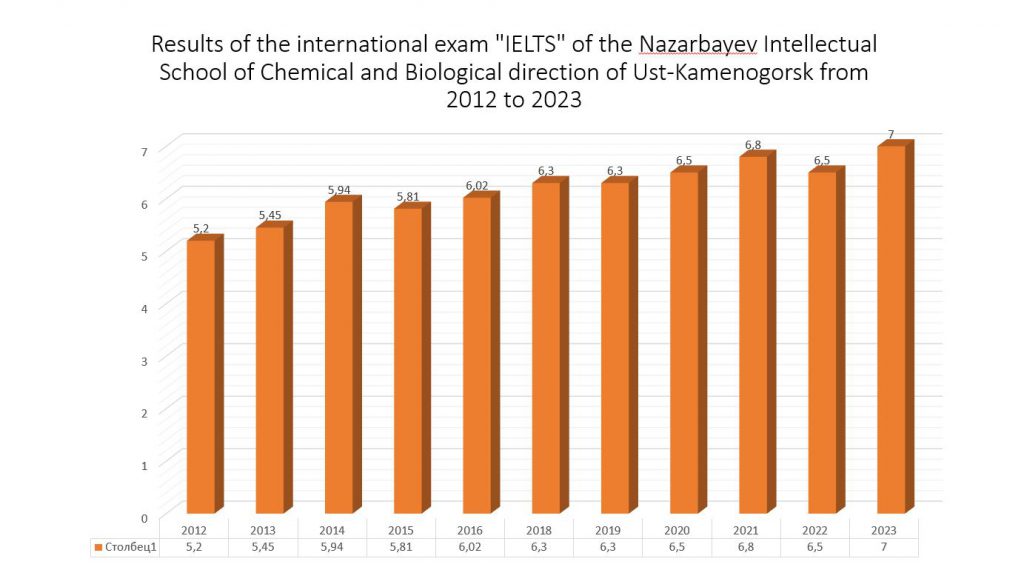
What is IELTS?
The International English Language Testing System (IELTS) is the world’s most popular English language proficiency test for higher education and global migration.
What is the test format and how long will it take?
IELTS has four parts – Listening (30 minutes), Reading (60 minutes), Writing (60 minutes) and Speaking (11–14 minutes). The total test time is 2 hours and 45 minutes. The Listening, Reading and Writing tests are done in one sitting. The Speaking test is held on the date you choose during your registration.
When and where can I take the test?
You can monitor the availability of exams for each date and place by clicking on the link.
Ielts.kz
Meetings in September 2023
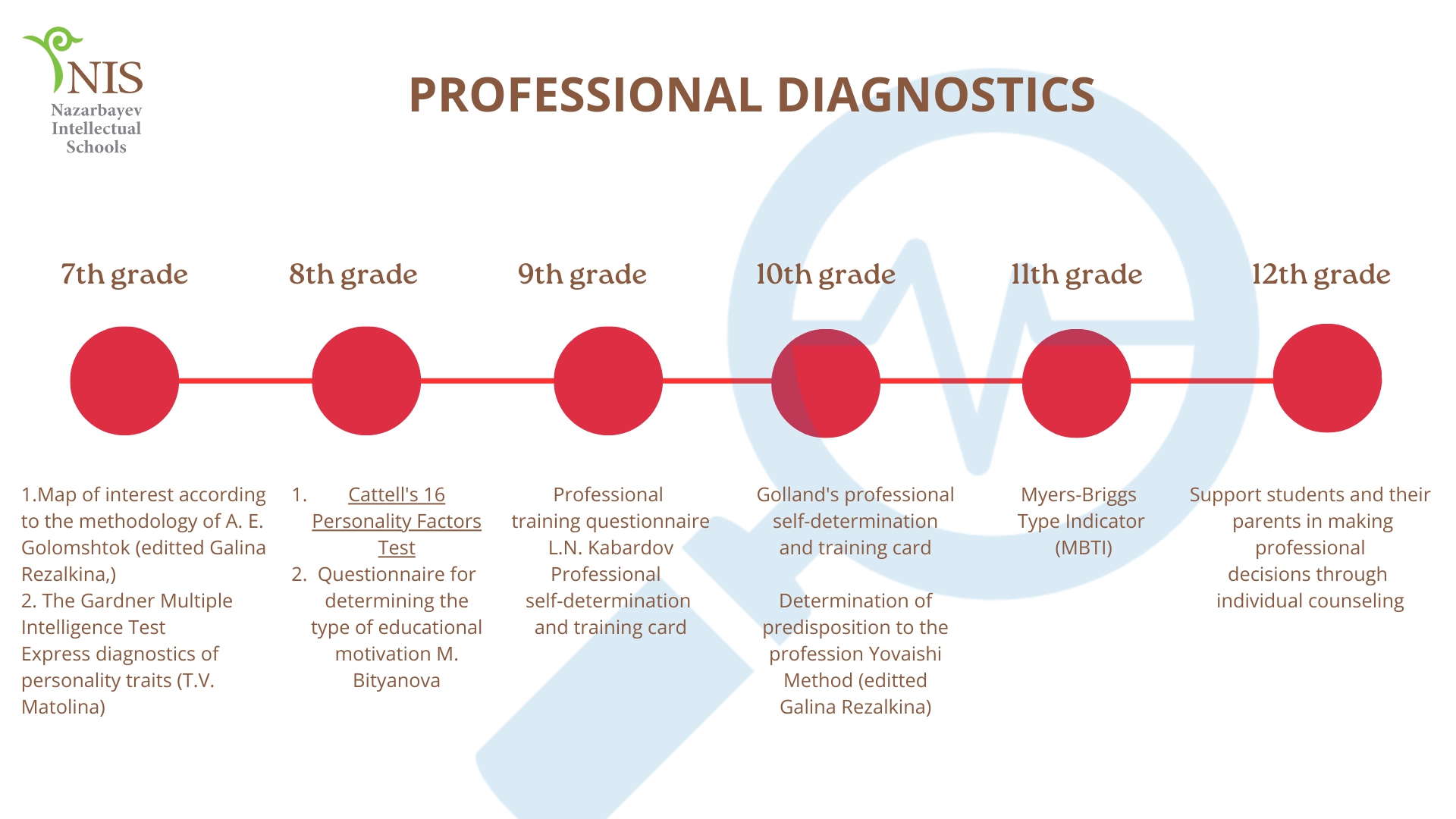
How do I choose a profession?
The profession should be interesting
One good reason to choose a profession is interest in its content. If you like it, you will work willingly, hold on to your place more firmly, improve your skills, gain respect from those around you, and eventually earn more money.
The profession must match your own abilities
Every profession has its own requirements for the person: his health, his qualification level, and his abilities. For example, if you have chosen the trendy profession of ecologist, you should know that you have to graduate from the university, you need to have analytical thinking, observation, and civil courage. Moreover, if you suffer from skin and allergic diseases or have disorders of the musculoskeletal system, you have no chance of getting into ecology.
The profession must be in demand.
When a person chooses a profession, he doesn’t always think: is this profession in demand among employers, will it be easy to find work in this specialty? However, the following can happen: you have chosen a profession, graduated from university, and when you began to apply for a job it turned out: there is no demand for such specialists. Unfortunately, it is impossible to say exactly how the demand for the profession will change in 5-10 years. Nevertheless, it is possible to find out what specialists are required today and to predict what professions will be required in the future.
Conventionally, these three requirements can be called “I want”, “I can”, and “I have to”. And your professional choice will be successful if you are able to combine them.
Is it always possible to determine the exact coordinates of a profession on a psychological map?
Of course, the division of professions into psychological types and classes is quite arbitrary. After all, strictly somehow, any profession is characterized by several aspects of its activity. But some of them are more essential, while others are less so. Thus, a professional lawyer most often has to work with people, therefore, his profession can be safely attributed to the “man-human” type. However, to a considerable extent, a lawyer has to deal with textual information: documents, laws, etc. Therefore, the activity of a lawyer may also have the features of the “human-sign system” type of profession.
Or a nurse, who first of all must be able to communicate with sick people, but in addition, she must have skills in caring for patients and using technical equipment, know the basics of human anatomy, physiology, pathology, chemistry, and pharmacology, be attentive when working with documents, test data, indicators of equipment. Examples of other related occupations include salesperson, security guard, secretary-referent, hairdresser, and dressmaker.
In addition, general professional categories may include several specializations. For example, a person who has received legal education and has the specialty of a lawyer may later choose one of several paths of his professional career. For example, he can become a lawyer, an investigator, a legal adviser, a notary, or a criminalist. And while a lawyer’s work is mainly aimed at people, a notary often deals with documents, and a criminalist deals with information.
Therefore, knowing only the general name of the whole category of professions, it is difficult to attribute them to one type with certainty. Thus, there are a fairly large number of different specializations of agents, salespeople, doctors, managers, teachers, and engineers.
NIS Challenge 2023
NIS Challenge 2023 captivated the participants with its scale!
On May 30, with the support of the Development Fund Corporate Fund and the participation of Alumni NIS, the second annual NIS Challenge Intellectual Game was simultaneously held in all NIS schools. 22 schools, 221 teams, more than 3300 students and 365 graduates, met in their native schools to demonstrate their knowledge in different fields, as well as show their ingenuity. The NIS Challenge once again brought alumni and students together in teams, each of which improved their communication skills and made a common contribution to the success of the game. The winners received memorable prizes, as well as a certificate for 100,000 tenge. This certificate will be used for our new crowdfunding project – a grant from graduates to study at NIS for a student from a socially vulnerable segment of the population. We would like to express our sincere gratitude not only to the teams, but also to the support groups and curators who took part in the NIS Challenge. Your support allowed us to hold the game at a high level.
NIS Challenge 2022
On May 25, 2022, the NIS CHALLENGE Intellectual Game was held in all Nazarbayev Intellectual Schools. The event is organized by NIS Alumni. The game was attended by 10 teams, each of which included students in grades 7-12 and a graduate. In the first round, there were interesting questions about the life of an NIS student, in the second, the school’s encrypted projects were presented. And in the third, the teams demonstrated their creativity. The winning team donated the cash prize from the NIS Development Fund to NIS Alumni (@nisalumni_official) projects. The winners received a board game and branded water bottles as a gift. All participants received access to training at the Jusan Singularity IT school from the sponsors of Jusan Bank.
On December 23, 2022, the Samgau Alumni Forum was held in all NIS schools.
This is a great opportunity for graduates to return to their native school, meet friends and teachers, plunge into the warm friendly atmosphere of school memories. Each of them was able to contribute to the development of students and share their experience in choosing a profession and university.
The program included sessions on:
- Registration in universities (application process)
- International exams (SAT, IELTS)
- Grants, scholarships
- Motivation and recommendation letters
- Academic transcripts and more
More than 50 of the graduates supported the schools and acted as speakers. IT, medicine, urban planning, oil and gas, social sciences, mathematics, chemistry, biology, ecology, economics, management, media communications are the specialties in which information sessions were held.
30 volunteers from grades 10-11 took part in Samgau.
In addition to graduates, students of the school acted as speakers and presented their own projects. 10 NIS students spoke about their work in the socio-social, medical and IT spheres.
What Is the SAT?
The SAT is a three-hour multiple-choice test created and administered by the College Board. It covers reading, writing, and math, and is used to determine students’ preparedness for college.
The SAT is held seven times a year, typically on the first Saturday of the month. The College Board also offers SAT School Day, a program that allows students to take the SAT at their own high schools during a school day in the fall or spring.
Students who want to send SAT scores to colleges must register for a test, which costs $60, about a month in advance. There’s no limit to the number of times you can take the SAT. Most students take it once or twice.
What does SAT stand for? Originally, the SAT was called the Scholastic Aptitude Test. Born in the era of the IQ test, the SAT’s earliest creators were interested in measuring innate intellectual ability. Later, as interest in innate intelligence waned and interest in potential grew, the test was renamed the Scholastic Assessment Test.
The College Board cycled through two more name changes — the SAT I: Reasoning Test and the SAT Reasoning Test — before finally sticking with the letters alone: the SAT.
While the SAT has long been a paper test, the College Board recently announced that the SAT will go digital starting in 2024.
Spokespeople for the SAT bill its digital recreation as a “lower-stakes test” for a “largely test-optional world.” Pending changes include:
Shortening the test length from three hours to two
Providing more time per question
What Is on the SAT?
There are two main SAT sections: Math and Evidence-Based Reading and Writing (EBRW).
EBRW comprises a Reading test and a Writing and Language test. SAT Math is split into two subsections: a no-calculator test (on which you may not use a calculator) and a calculator test (on which you may use a calculator).
Тут нужно поставить картинку номер 1
While the upcoming digital SAT promises fewer questions, the current test’s 154 questions are more or less evenly divided between Reading, Writing, and Math.
Reading
Questions: 52
Time: 65 minutes
Subscores: Command of Evidence, Words in Context
The Reading section contains five passages (up to two of which may be a pair of smaller passages) and asks 10-11 questions per passage or passage pair.
Reading passages are broadly drawn from the fields of history, social studies, science, and literature. You can generally expect to encounter at least one passage written in the early 20th century or earlier.
Writing and Language
Questions: 44
Time: 35 minutes
Subscores: Expression of Ideas, Standard English Conventions, Command of Evidence, Words in Context
The Writing portion asks for suggestions to correct or improve different parts of passages. Passages are pulled from a variety of sources and include arguments and nonfiction narratives.
You may be required to clarify arguments; select more appropriate words; and make grammatical, organizational, or stylistic changes.
Math — No Calculator
Questions: 20
Time: 25 minutes
Subscores: Heart of Algebra, Passport to Advanced Math
The shortest section of the SAT, Math — No Calculator consists of around 15 multiple-choice questions and five grid-in questions. For grid-ins, you must supply the answer yourself by filling in numbered bubbles.
The Math — No Calculator section tests an array of concepts, such as linear equations, linear inequalities, functions, quadratic equations, graphs, geometry, and complex numbers, as well as topics that inform more advanced math, such as nonlinear expressions, radicals, and exponentials.
Math — Calculator
Questions: 38
Time: 55 minutes
Subscores: Heart of Algebra, Problem Solving and Data Analysis, Passport to Advanced Math
On the Math — Calculator section, test-takers aren’t so much challenged on their ability to do math without mechanical errors as they are on their understanding of math concepts and their problem-solving skills.
This portion of the SAT, which includes around eight grid-in questions, covers concepts like linear inequalities, quadratic functions, geometry, trigonometry, statistics, and graph and data interpretation.Allowing calculators for the entire Math section
When Do You Take the SAT?
- https://www.collegeboard.org/
Поступление в казахстанские ВУЗы
Образовательные гранты на обучение в вузах РК присуждаются на конкурсной основе в соответствии с баллами сертификата ЕНТ.
Образовательные гранты распределяются по группам образовательных программ, в соответствии с комбинацией профильных.
Предметы NIS – Program, используемые для сертификата ЕНТ


Калькулятор для высчитывания баллов
Нужно вставить калькулятор

.png)


